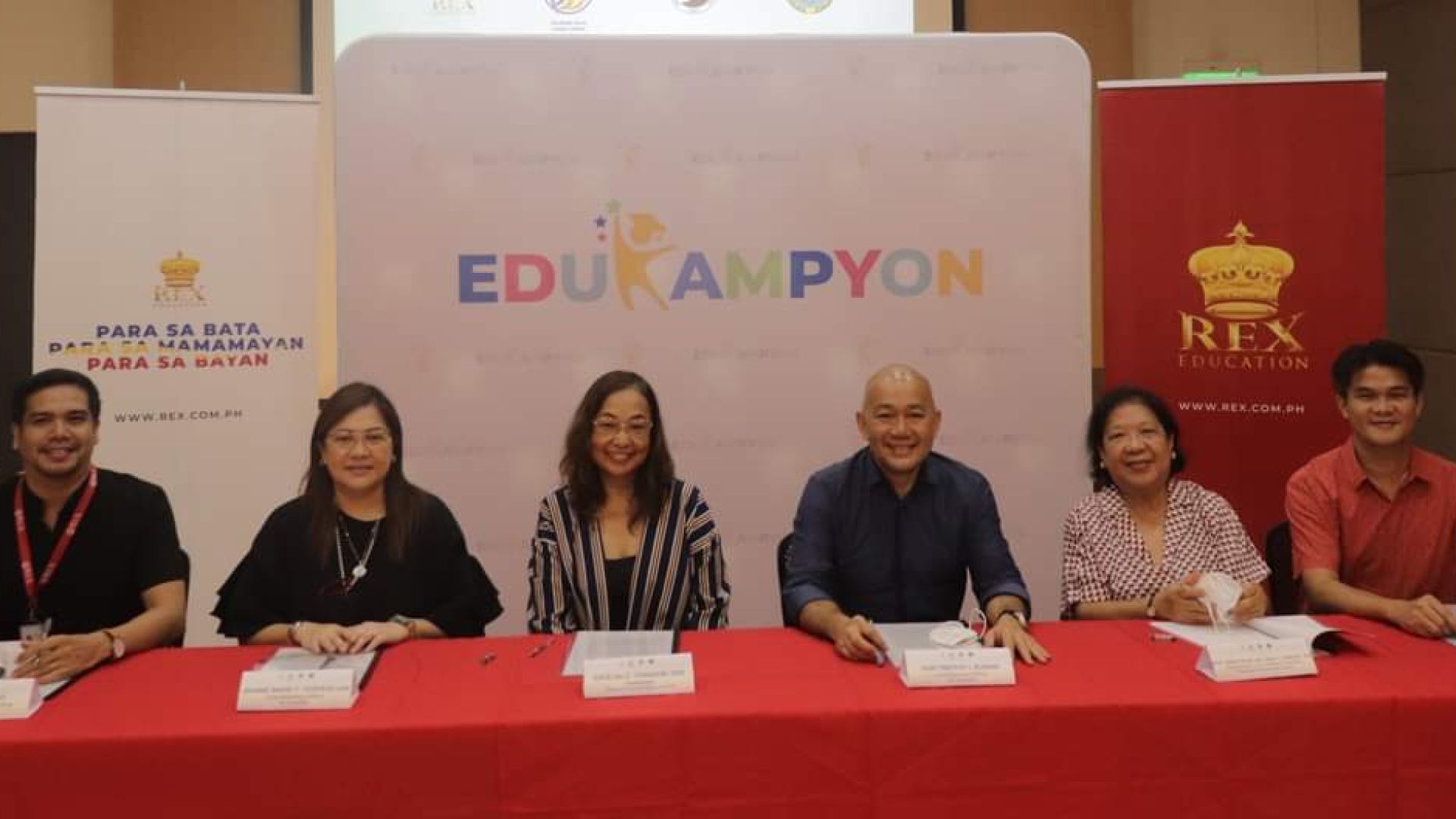
Rex Education hosted a memorandum signing with the Philippine Social Science Council (PSSC), the Philippine National Historical Society (PNHS), and the Philippine Historical Association (PHA) on September 6, 2022 to seal a fellowship program centered on Philippine history.
The main goal of the program is to develop a compendium on Philippine history that could serve as a reference material for writing and publishing future history-centered textbooks.
A careful selection of fellows who are knowledgeable about specific periods in Philippine history would be conducted to ensure the accuracy and credibility of the compendium.
In line with REX’s pledge of providing relevant and timeless learning solutions, the program would ideally improve the content of learning materials in history and social studies.
“This fellowship program brings together the academe, civil society, and private sector toward the common goal of serving Filipino learners,” Don Timothy Buhain, Chief Executive Officer of Rex Education, said in his welcome remarks.
“REX believes that looking back at where we all came from is important in enabling our learners, teachers, and communities.”
For every Filipino learner PSSC stands as the project’s implementing agency alongside REX. PHA and PNHS, two local and professional historical associations, will collaborate with REX and PSSC to oversee the compendium’s development.
“This wonderful, novel project will benefit all learners. History is not only for the young; it is for learners of all ages,” PSSC Chairperson Dr. Excelsa Tongson shared.
Dr. Bernardita Churchill, president of PNHS and president emeritus of the PSA and MSA, also highlighted the importance of corroborating history in a country as diverse as the Philippines.
“The plan is to enhance the study and teaching of Filipino culture, and create an inclusive history that will present the multiethnic history of the Filipino. A serious study of our history and culture would settle doubts and questions about our identity as a nation.”
A worthwhile endeavor for the future of education
REX’s goal for the program is to provide authoritative reference materials in the writing and publishing of history textbooks.
Dr. Marcelino Macapinlac Jr., a representative from PNHS and a professor for over three decades, believes that the references that will be produced by the fellowship will further capacitate authors and those in the academe as they enlighten learners about Philippine history.
The development of well-researched historical resources invites not only educators but also the youth to reflect on our national history and culture. Dr. Ma. Luisa Camagay, president of the PHA and professor emeritus, Department of History, UP Diliman, and Dr. Macapinlac noted that the current generation of learners has become more discerning of the sources they consume.
“I find that those who finish the K to 12 program are better prepared and more engaged [in the study of history],” said Dr. Macapinlac.
He noted that the last national elections highlighted how his students are now more passionate and engaged, but the bigger challenge lies in maintaining that passion in the long run.
“I hope Filipinos will not consider history just as a classroom or University course, but it should be a lifetime interest—whether Philippine, Southeast Asian, or world history,” Dr. Camagay concluded.
To keep up with news about the program, be sure to follow Rex Education’s Facebook page.





